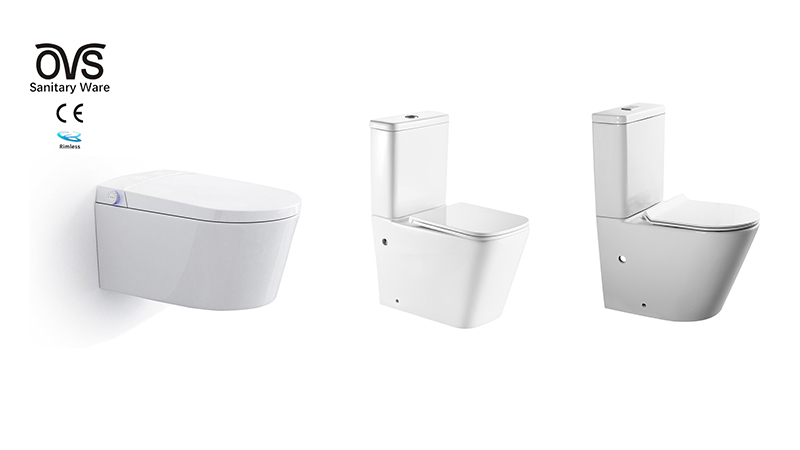Why Does Europe Have CE Certificate Requirements for Toilets?
Europe is known for its strict regulations and standards when it comes to ensuring the safety and quality of various products, including toilets. One such requirement is the CE certificate, which demonstrates compliance with European Union (EU) standards. But why does Europe have CE certificate requirements for toilets?

First and foremost, the CE certificate stands for Conformité Européene, which translates to European Conformity. This certification is mandatory for manufacturers who wish to market their toilets in the countries that are part of the EU. It ensures that the toilets meet the necessary health, safety, and environmental protection requirements. The CE certificate is evidence that the product conforms to the relevant EU directives and harmonized standards.
There are several reasons why Europe has these requirements for toilets. Firstly, it is essential to protect the health and safety of the citizens. By setting strict standards for toilets, the European authorities aim to prevent any potential health risks associated with poor sanitation. The CE certificate guarantees that the toilets have undergone rigorous testing and adhere to the necessary hygiene standards.
Secondly, Europe places a strong emphasis on environmental protection. By implementing CE certificate requirements, the EU aims to ensure that toilets are designed to be water-efficient and environmentally friendly. This is crucial in a time when water scarcity is becoming a global concern. By certifying toilets with the CE mark, Europe encourages manufacturers to produce eco-friendly devices that reduce water usage and promote sustainability.
Furthermore, the CE certificate requirements for toilets serve as a basis for fair competition within the EU market. When all the toilets on the market meet the same standards, it creates a level playing field for manufacturers. This helps promote innovation, quality improvement, and consumer confidence in the products. The CE certification assures consumers that the toilets they purchase meet the highest standards of quality and safety.
It is worth mentioning that the CE certificate is not just limited to toilets. It is a requirement for a wide range of products, including electrical appliances, machinery, and medical devices. This unified standardization helps facilitate trade within the EU and ensures that consumers in different member states can have access to safe and reliable products.
To obtain the CE certificate for toilets, manufacturers must adhere to a series of strict procedures. They must carry out the necessary conformity assessments, which involve testing the toilets according to harmonized standards. Manufacturers are also required to prepare technical documentation and issue a Declaration of Conformity, stating that their products meet all the relevant requirements. Additionally, they must affix the CE marking on the toilets and provide user instructions and information in the official language(s) of the target market.
In conclusion, Europe has CE certificate requirements for toilets to safeguard the health, safety, and well-being of its citizens, promote environmental sustainability, ensure fair competition, and enhance consumer confidence. The CE certificate acts as proof of compliance with EU directives and harmonized standards. By enforcing these requirements, Europe establishes a unified market for toilets that are tested and approved to meet the highest quality and safety standards.

First and foremost, the CE certificate stands for Conformité Européene, which translates to European Conformity. This certification is mandatory for manufacturers who wish to market their toilets in the countries that are part of the EU. It ensures that the toilets meet the necessary health, safety, and environmental protection requirements. The CE certificate is evidence that the product conforms to the relevant EU directives and harmonized standards.
There are several reasons why Europe has these requirements for toilets. Firstly, it is essential to protect the health and safety of the citizens. By setting strict standards for toilets, the European authorities aim to prevent any potential health risks associated with poor sanitation. The CE certificate guarantees that the toilets have undergone rigorous testing and adhere to the necessary hygiene standards.
Secondly, Europe places a strong emphasis on environmental protection. By implementing CE certificate requirements, the EU aims to ensure that toilets are designed to be water-efficient and environmentally friendly. This is crucial in a time when water scarcity is becoming a global concern. By certifying toilets with the CE mark, Europe encourages manufacturers to produce eco-friendly devices that reduce water usage and promote sustainability.
Furthermore, the CE certificate requirements for toilets serve as a basis for fair competition within the EU market. When all the toilets on the market meet the same standards, it creates a level playing field for manufacturers. This helps promote innovation, quality improvement, and consumer confidence in the products. The CE certification assures consumers that the toilets they purchase meet the highest standards of quality and safety.
It is worth mentioning that the CE certificate is not just limited to toilets. It is a requirement for a wide range of products, including electrical appliances, machinery, and medical devices. This unified standardization helps facilitate trade within the EU and ensures that consumers in different member states can have access to safe and reliable products.
To obtain the CE certificate for toilets, manufacturers must adhere to a series of strict procedures. They must carry out the necessary conformity assessments, which involve testing the toilets according to harmonized standards. Manufacturers are also required to prepare technical documentation and issue a Declaration of Conformity, stating that their products meet all the relevant requirements. Additionally, they must affix the CE marking on the toilets and provide user instructions and information in the official language(s) of the target market.
In conclusion, Europe has CE certificate requirements for toilets to safeguard the health, safety, and well-being of its citizens, promote environmental sustainability, ensure fair competition, and enhance consumer confidence. The CE certificate acts as proof of compliance with EU directives and harmonized standards. By enforcing these requirements, Europe establishes a unified market for toilets that are tested and approved to meet the highest quality and safety standards.

